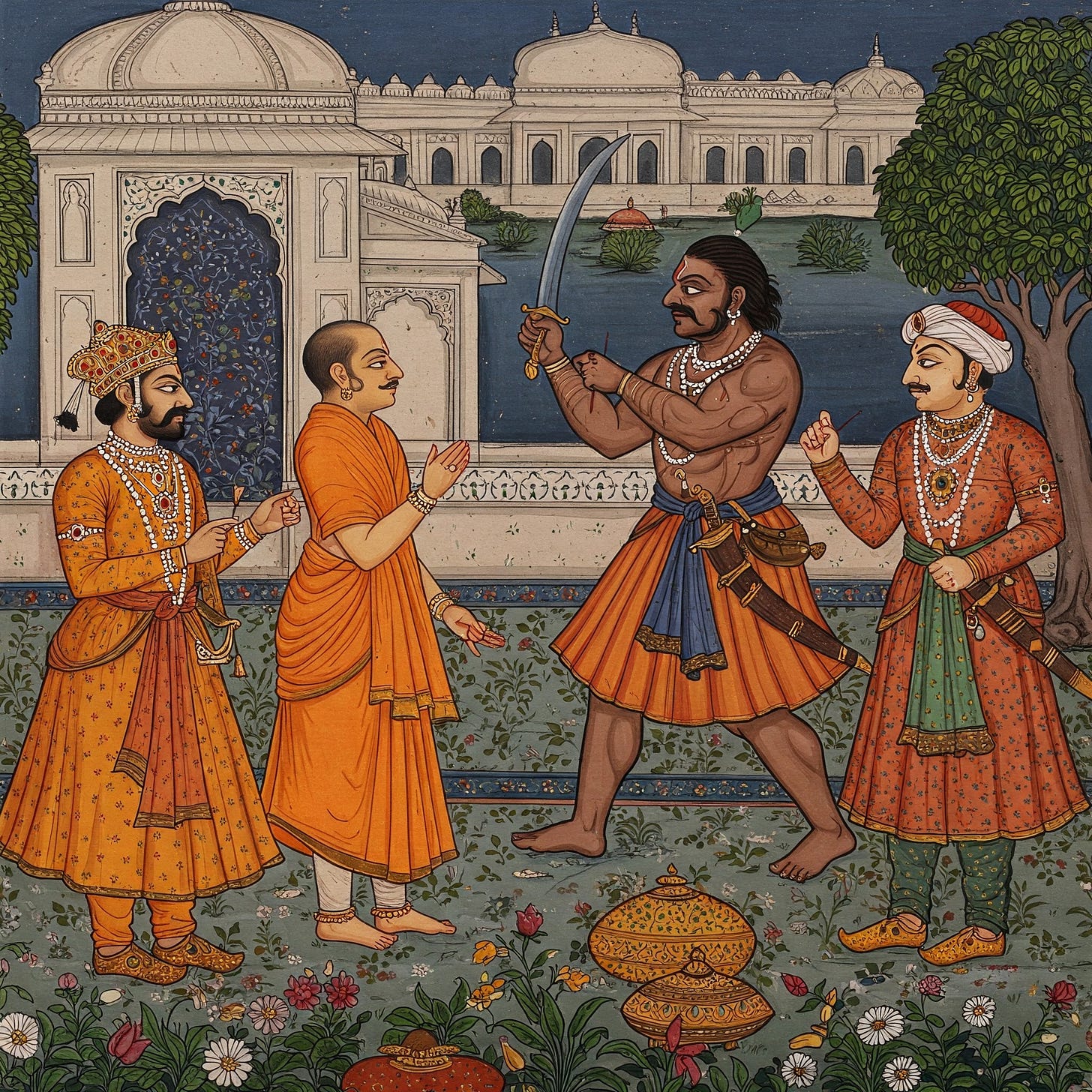On Power
Learning the law ft. Game of Thrones
Here’s a question: what do you think is more powerful?
Knowledge is powerful?
Wealth is more powerful?
Position is more powerful?
Here’s another variant of the same question:
King/State hold real power?
Religion/Priest/Maulana/Bishop/God hold real power?
Wealth/capitalist/industrialist hold real power?
Making the more contemporary sense of the question - which individual do you think is the most powerful?
Modi is more powerful?
Ramdev baba is more powerful?
Ambani is more powerful?
This question is asked by George RR Martin in his book “A Song of Ice and Fire” which is also adapted in HBO’s series “Game of Thrones”.
Here’s the question:
In a room sit three great men, a king, a priest, and a rich man. Between them stands a sellsword. Each of the great ones bids him slay the other two. Who lives and who dies?
This is a dialogue between two of its characters Tyrion Lanister and Lord Varys.
It’s okay if you haven’t seen the show or read the book.
Basically, the question is that if three powerful people representing three different powerful institutions sit in the room and between them is a guy with a sword. And each of these people try to influence him to kill the other two. Who would live and who would die?
This isn’t merely a hypothetical question but reflects real-world dynamics. While the likelihood of Modi, Ambani and Ramdev Baba being trapped in a room with a gunman is improbable, the ongoing conflict between the institutions they represent is very real.
Who is more powerful between state, religion and corporations? Who is more powerful between Modiji, Ambani and Ramdev baba? Is there any objective way to measure this?
Until now, you either have the answer to the question or you don’t have either way let’s test your answer.
You think the State currently represented by Modi is the most powerful?
Consider the Farm Laws where the state had to yield and take back the laws and the Ram Janmabhoomi Ayodhya case which illustrates how deeply held beliefs can override political and economic concerns.
No, now you think Religion represented by gurus like Ramdev baba is the most powerful?
Then consider Sabrimala Temple Case wherein the state and courts established constitutional morality overriding religious opposition.
You think corporations in a capitalist society led by Ambani are the most powerful.
Consider the State decisions like demonetization and lockdowns which significantly impacted businesses, regardless of size.
You think none of them are powerful but from the original paragraph think the sellsword who has the sword in his hands has the ultimate power to decide the fate of each of these individuals.
Well if that’s the case, why does the military, judiciary, and media who could be considered as modern-day sellswords often defer to government officials, who may lack specialized training?
Confused enough now?
Tyrion Lannister shared this confusion, and Lord Varys offered this explanation:
Tyrion asked, “Did you mean to answer your damned riddle, or only to make my headache worse?”
Varys smiled. “Here, then. Power resides where men believe it resides. No more and no less.”
“So power is a mummer’s trick?”
“A shadow on the wall,” Varys murmured, “yet shadows can kill. And oftentimes a very small man can cast a very large shadow.”
The interpretation from the above passage is that the real power lies in the belief of an individual. The king/state has authority, the priest/religious gurus have divine influence and the industrialist/rich man has wealth. What the sellswords would do would depend upon what does he value the most - his loyalty to the king, fear of the divine or greed for gold.
So, if the sellswords value gold, the rich man could sway him. If he respects the crown/laws, the king’s command would prevail and if he fears the divine or seeks redemption then the priest might have the strongest claim.
Each of the contemporary examples given above highlights how power shifts based on who controls the sellsword (armed forces, media, judiciary or public sentiment).
When the state (politicians) controlled the sellsword, the government won (e.g., Kashmir Article 370).
When religious forces influenced public sentiment and judiciary, faith won (e.g., Ram Mandir).
When wealth influenced policies, media and legal outcomes, business tycoon won (e.g., Reliance Jio, Adani Ports).
Power in India, just like Game of Thrones, depends on who the enforcer believes holds the real power.


